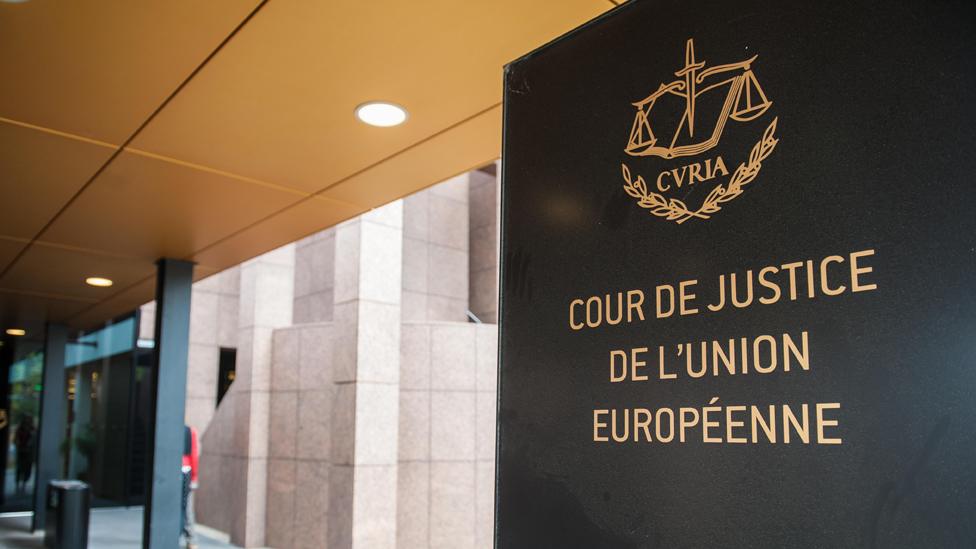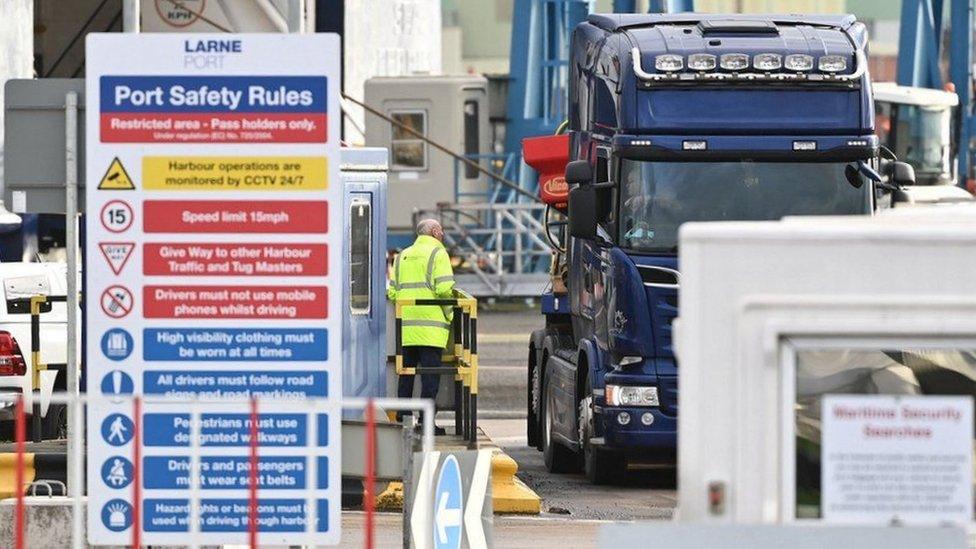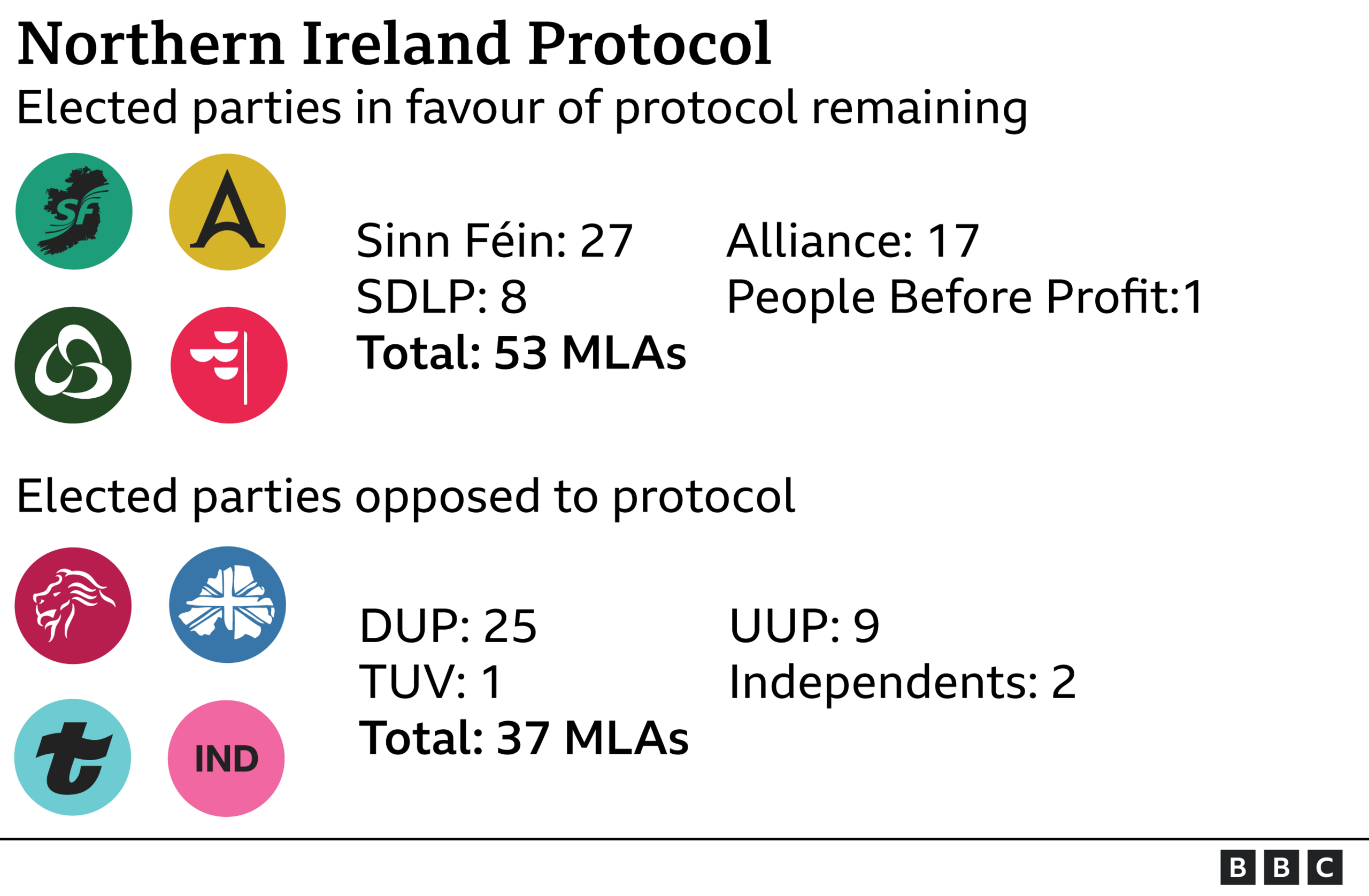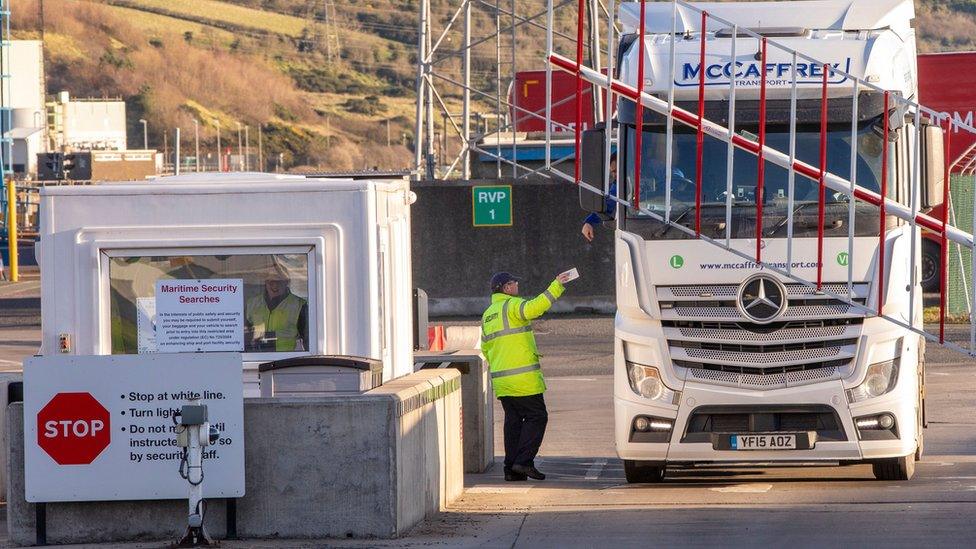NI Protocol: EU talks down reports of compromise deal on European court
- Published
- comments

Officials in Brussels have dismissed fresh claims of a compromise deal on the European Court of Justice's (ECJ) role in the Northern Ireland Protocol.
It follows a Times newspaper report, external.
It said negotiators had agreed the ECJ could rule on issues related to Northern Ireland only if a case was referred by Northern Ireland's courts.
Two people close to the talks have either pushed back hard against the report or described it as loose-lipped "kite-flying" by someone in London.
Both the UK and EU told the BBC "challenges" remained on reaching an overall agreement.
It is understood significant gaps remain between the EU and UK positions but that talks are ongoing on potential solutions, including goods.
'In the tunnel'
A spokesperson for the UK government said it was currently engaged in "intensive scoping talks" with the EU to find solutions to what it described as problems with the protocol.
A precise timeline on when a deal could be concluded is not clear, but one official said negotiators were in the proverbial "tunnel".
This is an expression used when talks are reaching a critical stage and become increasingly secretive as a deal is believed to be within reach.
European Commission President Ursual von der Leyen said talks between the EU and UK were very productive.
"The protocol as always in negotiations - you know the principle that everything is only negotiated at the very end - when you know what the result is and you give a final signature," she told the BBC in Brussels.
"So I'm very sorry but I cannot give partial elements because you never know whether in the very end how the package looks like."
ECJ oversight

Food products are among products checked at Northern Ireland's ports
Last month the BBC reported that both sides were edging towards a broad "framework" agreement - with the most progress having been made on customs.
Ongoing negotiations, which have intensified in recent weeks, have been described as "bottom up", meaning officials are being left to scope out ideas that can then be fed up the chain.
In January, Bloomberg reported that the UK had proposed "supplementing" the ECJ with an independent arbitration panel.
Britain had originally demanded that the ECJ's oversight role be removed - but then later suggested it could accept a more arms-length arrangement.
Regardless any compromise of that kind would also represent a significant UK concession, as well as an EU one.
"Our priority is protecting the Belfast (Good Friday) Agreement and preserving political stability in Northern Ireland and the UK internal market," the government spokesperson added.
"Any solution on the protocol must address the range of issues on the ground in Northern Ireland."
The NI Protocol keeps Northern Ireland inside the EU's single market for goods, meaning trade can flow across the land border without new paperwork or checks.
However, it also means there are new checks and controls on goods entering Northern Ireland from Great Britain.
That has caused difficulties for some businesses and is opposed by unionists in Northern Ireland.
The biggest unionist party, the Democratic Unionist Party (DUP), is preventing a government from being formed in Northern Ireland as a protest.
A majority of members of the Northern Ireland Assembly elected in May 2022 are in favour of the protocol, in some form, remaining.
Sinn Féin, Alliance and the SDLP have said improvements to the protocol are needed to ease its implementation.
Unionist politicians want it replaced with new arrangements.

Most politicians elected to the Northern Ireland Assembly want the protocol to remain
The UK and the EU agree that the protocol as it was originally agreed is too difficult in practice.
Speaking in the Dáil (Irish parliament) on Wednesday, Taoiseach (prime minister) Leo Varadkar said it was important the ongoing talks between the UK and the EU take part on a confidential basis.
He said he welcomed the continuing positive engagement between the two sides.
Mr Varadkar added that he believed it was possible for them to find a joint solution but "newspaper reports notwithstanding" said he could confirm no deal had been done.
He said he believed recent EU proposals on customs have been very helpful.
Related topics
- Published2 February 2024

- Published14 December 2022
